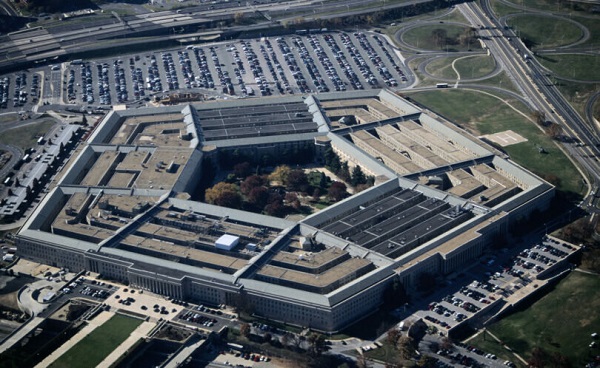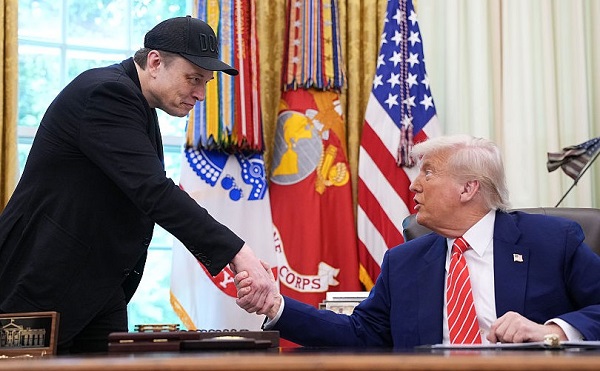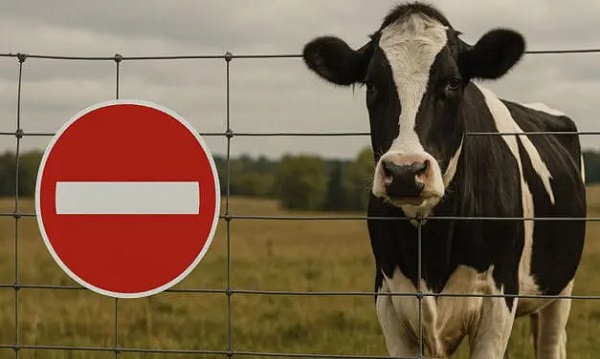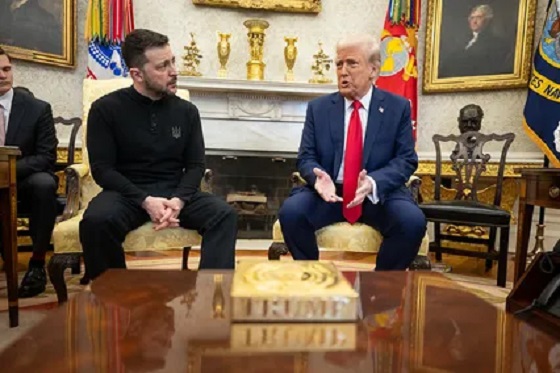2025 Federal Election
Canada’s press tries to turn the gender debate into a non-issue, pretend it’s not happening

From LifeSiteNews
When a conservative reporter asked Mark Carney how many genders there are and the prime minister gave an evasive answer, liberal journalists considered the question inappropriate because they want to control the narrative.
By any traditional journalistic standard, the reconstitution of reality by transgender ideology is one of the biggest stories of our generation. Indeed, in the middle of the Canadian election campaign, the UK Supreme Court ruled that “transwomen” are not women, triggering a massive backlash from the transgender movement and widespread celebration from those still possessed of common sense.
In Canada, however, the press — with the exception of the National Post and several independent outlets — has more or less collectively agreed to ignore the topic and to treat the matter as if it is settled. The mainstream broadsheets simply assume the validity of gender ideology and the social victory of the transgender movement regardless of the debates raging across the Western world.
Thus, when Alex Zoltan of Juno News managed to ask Prime Minister Mark Carney a question after the French debate, he touched a topic the rest of the media was avoiding like the plague: “How many genders are there?”
This is obviously a relevant question, with direct relevance to government policy. Current government guidelines state that gender is distinct from sex, and the Trudeau government introduced a non-binary gender option (“X”) for passports and other federal documents. Government missives have consistently referred to recently invented identities such as “two-spirit,” and last year Justin Trudeau explicitly stated that “transwomen are women” — on International Women’s Day (the UK Supreme Court disagrees).
Zoltan’s question was simple: “How many genders are there?”
In Mark Carney's Canada, stopping men from going into women's rape shelters is only a "general objective." pic.twitter.com/qJNqaBMUpt
— Alex Zoltan (@AmazingZoltan) April 20, 2025
Carney was uncomfortable but obviously prepared for the question. “Uhhhh … in terms of sex, there are two. Thank you.”
Zoltan: “My follow-up question then. Do you believe that women, biological women, have the right to their own spaces, their own sports, their own changerooms, their own prisons, their own homeless shelters?”
Here, Carney vacillated. The policy of the Trudeau government has been to segregate based on “gender” rather than biological sex. “This is Canada,” Carney stated obviously. “Um, and, um, ah, as a general objective, yes, but we work where we value all Canadians for who they are and we’ll continue to do so. Thank you very much.” In short: Carney performed a neat, albeit stumbling, pivot. He affirmed two sexes — as Pierre Poilievre has — but also appeared to affirm the Trudeau government’s transgender policies.
It is safe to assume that Carney, who has an adult daughter who identifies as non-binary, will not roll back any of Trudeau’s transgender policies, although he will likely be less performative about his LGBT activism. But what was as notable as his response to the question was the Canadian establishment’s reaction. Despite the fact that Zoltan’s question was incredibly relevant, they immediately responded as if only a fringe extremist would bother to touch on an issue so miniscule as the radical overhaul of our laws by a radical movement.
From the CBC:
True North dared ask Mark Carney if women deserve sex-based spaces, and the establishment is LIVID.
CBC cries it’s “unrelated to the debate.” 😢
They are desperate to control the narrative AND big cowards for not asking such a basic question already.pic.twitter.com/AhZmbKFlvE
— Cosmin Dzsurdzsa (@cosminDZS) April 17, 2025
The CBC complained that the topic was “unrelated to the debate.” Of course, the mainstream press has appointed itself the gatekeepers of which topics get covered, and transgender ideology has been ruled off-limits — which is why the state broadcaster would not even cover the UK’s Cass Review, which condemned the “gender-affirming care” so enthusiastically defended by the CBC and other outlets.
Journalist Wyatt Sharpe claimed the question was “American,” somehow — as if Canada has not been out front on these issues: “How many Canadians genuinely care about ‘how many genders there are?’… that is the type of American culture war style question that True North, Rebel, etc were hoping to cause Mr. Carney to not be able to answer. He answered it fine, and that’s why True North and Rebel haven’t been posting the question like they usually would across social media.”
The quintessential response came from David Beaudoin: “True North finally makes it on prime time. We’re in a trade war with the U.S. The economy is in peril. Here is a world-renowned economist running for Prime Minister. Time to show Canadians you’re a serious news outlet. ‘How many genders are there?’”
The message is clear. Men in women’s prisons? Men in female spaces? Women getting sexually assaulted by men in women’s shelters? Girls getting double mastectomies? Children getting socially transitioned by public schools without the knowledge of their parents, an issue taken up by several provinces (one of which used the notwithstanding clause to stop it)? The mainstream press has ruled from on high: Not real issues.
So, to all the women and girls and parents concerned about these issues: Shut up, they explained.
2025 Federal Election
NDP’s collapse rightly cost them official party status

This article supplied by Troy Media.
 By Michael Taube
By Michael Taube
Official party status requires 12 seats. The NDP got seven. End of story
Rules are rules.
That, in a nutshell, is why the NDP wasn’t granted official party status in the House of Commons on Monday. Prime Minister Mark Carney and the
Liberals, to their credit, made the right decision.
Let’s examine why.
The 1963 Senate and House of Commons Act passed an amendment that gave an annual allowance to party leaders other than the prime minister and
leader of the Opposition. In doing so, the Canadian government had to establish what constitutes a “political party.” The definition they came up with was a sensible one: it had to have a “recognized membership of 12 or more persons in the House of Commons.”
This important amendment is still used today.
The NDP fell from 24 to a paltry seven seats in last month’s federal election. (There are a total of 343 seats in the House of Commons.) They finished with 1,234,673 votes, or 6.29 per cent, which was behind the Liberals, Conservatives and Bloc Québécois. Party leader Jagmeet Singh, who had represented the former Burnaby South riding since 2019, finished a distant third in the newly created Burnaby Central riding and resigned.
The NDP’s seven seats is well below the 12-seat requirement needed for official party status. This means Canada’s socialist alternative won’t be able to ask questions in the House of Commons and will lose out on money for research purposes.
Or, to put it another way, they’re plumb out of luck.
Hold on, some people said. They pointed out that the NDP’s seat count and popular vote only plummeted because many progressive voters backed Carney and the Liberals as the best option to counter U.S. President Donald Trump and his tariffs. They felt that the NDP’s long history as a champion for unions and the working class should count for something. They suggested there should be an exception to the rule.
Guess what? They’re wrong.
This is the worst election result in the party’s history. Even its predecessor, the Co-operative Commonwealth Federation (CCF), did marginally better in its first campaign. The CCF won seven out of 245 seats—and earned 410,125 votes, or 9.31 per cent—in the 1935 election. Party leader J.S. Woodsworth, who had represented the riding of Winnipeg North Centre as an Independent Labour MP since 1925, comfortably held his seat.
Meanwhile, this won’t be the first time they’ve ever lost official party status.
The NDP dropped from 43 to nine seats in the 1993 election. It was a dismal showing, to say the least. There was a suggestion at the time that then-party leader Audrey McLaughlin, the first woman to lead a party with political representation in Canada’s House of Commons, deserved a better fate. While the NDP certainly came closer to achieving the 12-seat requirement in this particular election, Prime Minister Jean Chrétien and the Liberals decided against granting them official party status.
Why? As I mentioned earlier, rules are rules.
Then again, British pilot Harry Day notably told his fellow flying ace Douglas Bader in 1931, “You know my views about some regulations—they’re written for the obedience of fools and the guidance of wise men.”
Does this mean that individuals and organizations who follow rules are, in fact, fools? Not at all. While certain rules in a liberal democratic society can range from slightly questionable to utterly ridiculous, they’re usually put in place for a specific purpose.
In the case of the House of Commons, it’s to ensure that a bar has been set with respect to political representation. Is 12 seats the right number? That’s difficult to say. It certainly prevents small protest parties and one-issue parties that unexpectedly win a tiny number of seats in an election from acquiring power and status right off the bat. They need to win more seats and grow in size and stature to reach a point of respectability. Most of them never reach this point and disappear while others float in a constant state of mediocrity like the Green Party of Canada. ’Tis the nature of the political beast.
One final point. If Singh and the NDP had reached double digits in total number of seats in 2025, a solid case could have been made in favour of official party status. If they had finished with 11 seats, it would have almost been a lock. Neither scenario ultimately materialized, which is why Carney and the Liberals did exactly what they did.
Michael Taube is a political commentator, Troy Media syndicated columnist and former speechwriter for Prime Minister Stephen Harper. He holds a master’s degree in comparative politics from the London School of Economics, lending academic rigour to his political insights.
Troy Media empowers Canadian community news outlets by providing independent, insightful analysis and commentary. Our mission is to support local media in helping Canadians stay informed and engaged by delivering reliable content that strengthens community connections and deepens understanding across the country.
2025 Federal Election
Judicial recounts give Conservatives 2 more seats, keeping Liberals short of majority

From LifeSiteNews
After a judicial recount, Conservative candidate Kathy Borrelli has officially won over Liberal incumbent Irek Kusmierczyk, in the Ontario riding of Windsor-Tecumseh-Lakeshore.
Judicial recounts from the 2025 federal election have given the Conservative Party two new seats, with one candidate winning by just four votes.
After a judicial recount, Conservative candidate Kathy Borrelli has officially won over Liberal incumbent Irek Kusmierczyk, in the Ontario riding of Windsor-Tecumseh-Lakeshore.
Borrelli got 32,090 votes, with Kusmierczyk getting 32,086 votes, and NDP candidate Alex Ilijoski getting 4,240 votes.
In the Newfoundland riding of Terra Nova-The Peninsulas, Conservative candidate Jonathan Rowe beat out Liberal Anthony Germain by just 12 votes after a recount with the initial result showing a Liberal victory.
The new election results mean the Conservatives now have 144 seats with the Liberals at 169, three short of a majority.
Judicial recounts are automatically triggered when the margin of victory for a candidate is less than 0.1 percent of valid votes.
While these recounts have favored the Conservatives, others have gone in the Liberal Party’s favor.
A May 16 judicial recount switched the southern Ontario riding of Milton East-Halton Hills South to the Liberals with a 21-vote victory over the Conservatives.
Overall, the election results have been a big blow to the Conservative Party, which on top of losing the election also saw its leader, Pierre Poilievre, fail to win his long-held seat. However, Poilievre is expected to run in a yet-to-be-announced by-election in Alberta to reclaim a seat in Parliament.
-

 International5 hours ago
International5 hours agoIsrael’s Decapitation Strike on Iran Reverberates Across Global Flashpoints
-

 Business14 hours ago
Business14 hours agoTrump: ‘Changes are coming’ to aggressive immigration policy after business complaints
-

 illegal immigration14 hours ago
illegal immigration14 hours agoLA protests continue as judge pulls back CA National Guard ahead of ‘No Kings Day’
-

 Business1 day ago
Business1 day agoThe carbon tax’s last stand – and what comes after
-

 International24 hours ago
International24 hours agoPentagon agency to simulate lockdowns, mass vaccinations, public compliance messaging
-

 International2 days ago
International2 days agoElon Musk expresses ‘regret’ over attacks on Trump that ‘went too far’
-

 Business1 day ago
Business1 day agoOur addiction to dairy supply management is turning Canada into a trade pariah
-

 Alberta3 hours ago
Alberta3 hours agoPunishing Alberta Oil Production: The Divisive Effect of Policies For Carney’s “Decarbonized Oil”







